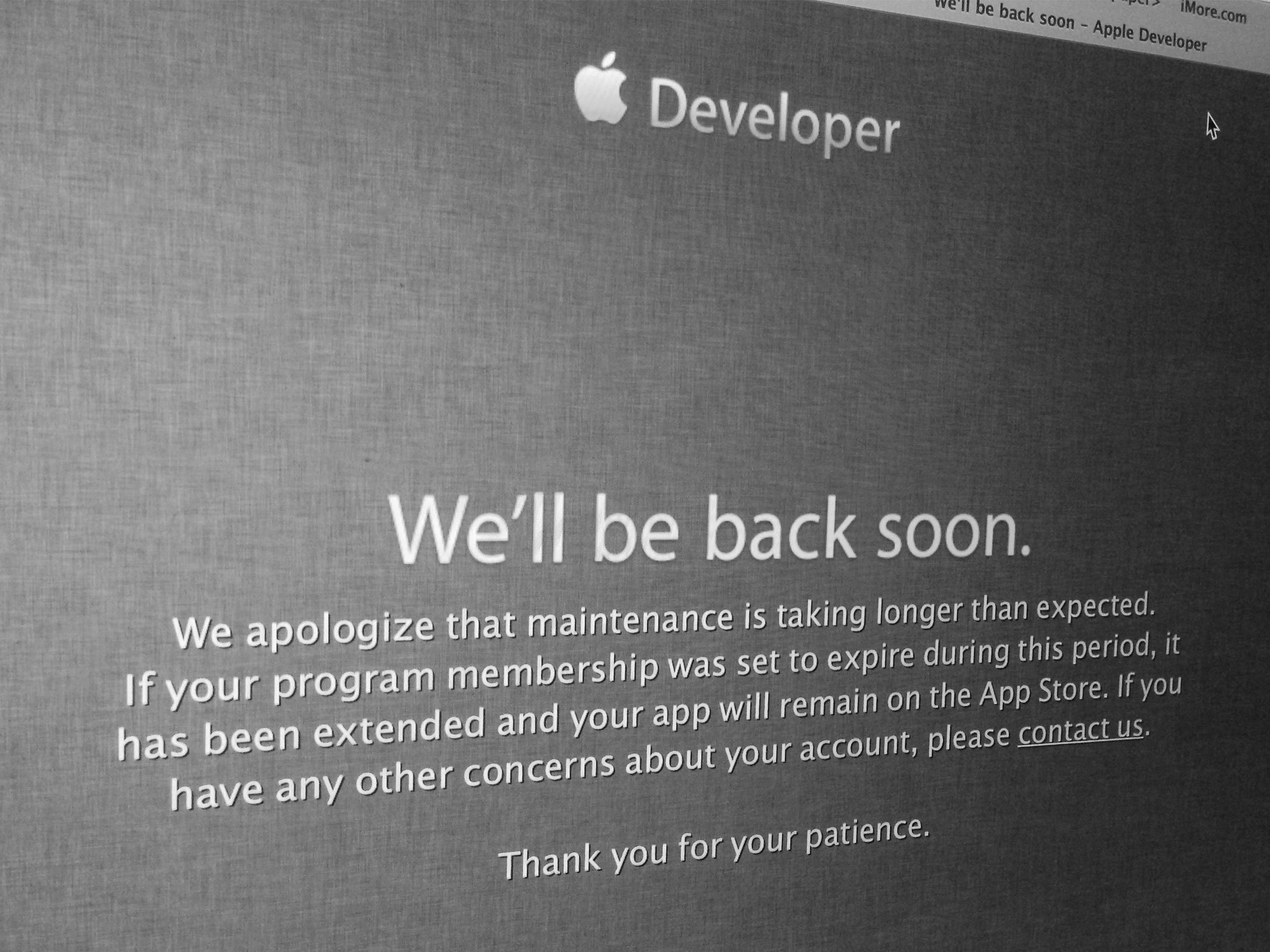Apple discloses bug that was likely responsible for developer center downtime

Apple recently updated their Web Server notifications page with several new acknowledgements to people who discovered and reported security vulnerabilities in Apple's servers. Among the discoveries acknowledged seems to be the vulnerability that was responsible for Apple's Developer Portal's eight-day outage. The notifications page shows a remote code execution vulnerability being reported on July 18th, the same day that Apple took the developer site down.

In the days following the outage, Apple posted a message explaining that the portal had been taken down in response to a security threat. Apple further explained that to prevent any similar security threats from occurring that they would be overhauling the entire system, which is what ultimately caused the prolonged outage. This prompted security researcher Ibrahim Balic to come forward publicly, believing that he was the one responsible for the outage. However, with Apple now giving credit to 7dscan.com and SCANV of www.knownsec.com for the discovery of a remote code execution vulnerability on developer.apple.com, it's much more likely that this was the cause of the developer portal downtime.
The information disclosure bug reported by Balic allowed him to retrieve a users's username, real name and email address by providing a single piece of user information. While this is certainly a bug and raised a concern about privacy, a remote code execution vulnerability poses a much greater threat. We don't know the details of the vulnerability, but its classification would suggest that a remote attacker may have had the ability to execute arbitrary code on Apple's servers. In more severe cases, this type of vulnerability can lead to an attacker completely taking over a machine remotely. Given the relative severity of the vulnerabilities, and the timelines being reported by Apple, all signs point to the remote code execution vulnerability being the culprit.
Source: 9to5Mac
Master your iPhone in minutes
iMore offers spot-on advice and guidance from our team of experts, with decades of Apple device experience to lean on. Learn more with iMore!

